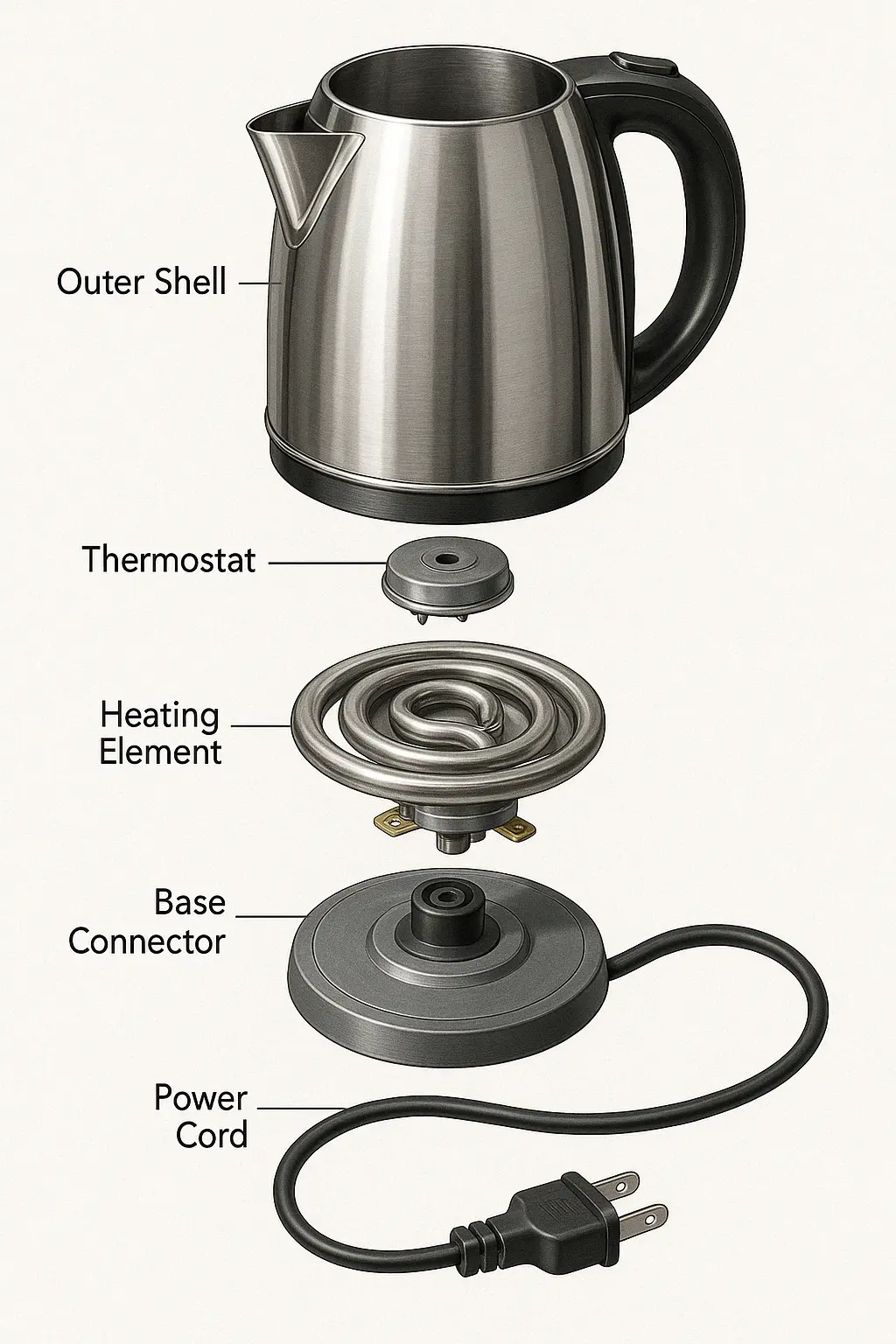
UL 1278 Test Report for Portable Heaters
What is a Portable Small Heater?
The UL 1278 test report for small heaters is a standard for testing electrical safety, primarily used to assess the safety performance of heaters to ensure they do not pose a threat to personal safety during use. This standard applies to movable wall-mounted or ceiling-mounted indoor electric heaters with a rated voltage not exceeding 600 V.
Amazon’s Policy on Small Heaters
1. Amazon requires that all small heaters be tested and comply with the following specific regulations or standards:
2. Required Information
We may request the following information at any time, so it is advisable to have this information ready for submission:
- Your company name (if applicable) and seller ID
- Your contact information: email address and phone number
- A list of all small heaters you have listed
- Product images of all small heaters you have listed. The images must include the following:
- Safety information
- Compliance marks
- Product hazard warnings
- All product manuals and brochures for the small heaters you have listed
- Test reports issued by an ISO 17025 accredited laboratory confirming that each item has been tested and meets the applicable requirements (China JJR Laboratory is IEC 17025 authorized and can provide this service for you).
UL 1278 Test Items
- Input Power Test: Tests whether the power consumption of the heater under normal operating conditions meets design requirements and relevant standards, ensuring there is no excessive or insufficient power affecting safety and performance.
- Leakage Current Test: Measures the current that may leak to the casing or other accessible parts during the heater's operation; excessive leakage current may pose a shock hazard to users.
- Dielectric Strength Test: Applies a certain high voltage to the heater's insulation system to check its ability to maintain good insulation performance under high voltage, preventing electrical breakdown and leakage.
- Insulation Resistance Test: Tests the insulation resistance value of the heater to determine the quality and performance of its insulation materials; low insulation resistance increases the risk of electric shock.
- Heating Related Tests:
- Normal Heating Test: Simulates the heating conditions of the heater under normal usage to check whether the temperature of the heating element is within a safe range and whether the heater's heat dissipation can ensure normal operation without overheating the surrounding environment.
- Abnormal Heating Test: Includes testing under abnormal conditions such as overvoltage, fan stall, tipping over, facing a wall, covering with cotton cloth, and covering with cotton strips to check for overheating or fire hazards in abnormal states.
- Durability Test: Evaluates the performance stability and reliability of the heater over prolonged use, including testing for wear and aging of key components.
- Mechanical Performance Tests:
- Stability Test: Checks whether the heater can remain stable during normal use or when subjected to certain external forces to prevent tipping and safety accidents.
- Drop Test: Drops the heater from a certain height to verify whether its casing, internal structure, and components can withstand impact and whether this will affect its normal use and safety.
- Heating Element Support Structure Impact Test: Tests the strength and stability of the support structure of the heating element when subjected to impact, ensuring the heating element can operate normally without posing a danger to users.
- Other Tests: Also includes durability tests for alarm devices, transformer overload tests, transformer burnout tests, abnormal component tests, rain tests, power cord tension tests, nameplate tests, etc.
UL 1278 Testing Process
1. Fill out the application form;
2. Provide samples;
3. Arrange testing;
4. Draft report upon passing tests;
5. Confirm issuance of the official report.
Cycle: If all materials are complete, the process will be completed within five working days.
Email:hello@jjrlab.com
Write your message here and send it to us
 What is the 4.3 Toxicology Test in ASTM F963?
What is the 4.3 Toxicology Test in ASTM F963?
 What is the Canada Tent SOR/2024-217 Test Report?
What is the Canada Tent SOR/2024-217 Test Report?
 How to get the Amazon AS/NZS 1900 Test Report?
How to get the Amazon AS/NZS 1900 Test Report?
 Children's Jewelry CPC Certification and ASTM F292
Children's Jewelry CPC Certification and ASTM F292
 Amazon Ladder Compliance Certification Guide
Amazon Ladder Compliance Certification Guide
 Amazon and Temu Require FCM Test Reports
Amazon and Temu Require FCM Test Reports
 Electric Kettle Amazon Canada Compliance Certifica
Electric Kettle Amazon Canada Compliance Certifica
 Do You Understand Amazon Compliance Certification?
Do You Understand Amazon Compliance Certification?
Leave us a message
24-hour online customer service at any time to respond, so that you worry!




